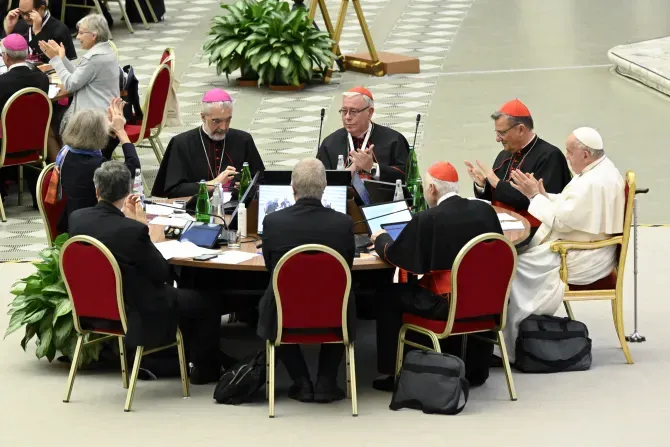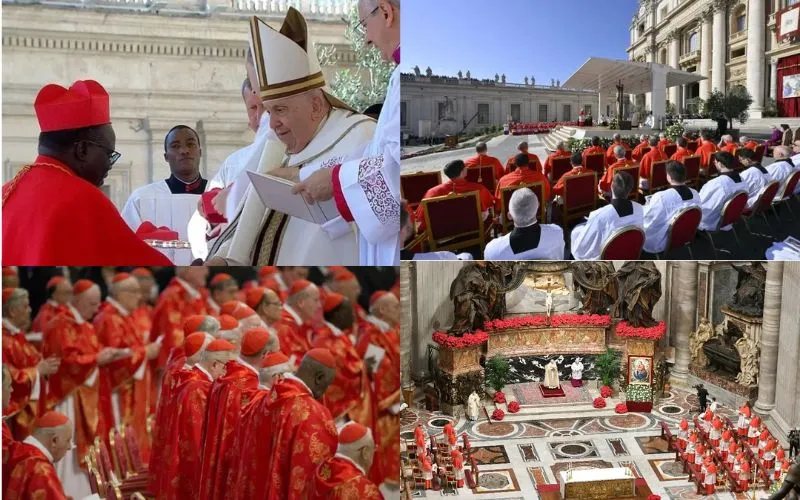Church teaching can be “translated into appropriate pastoral initiatives,” it continued, noting that even where “further clarification is needed,” we should follow the example of Jesus.
People who feel marginalized or excluded from the Church because of their “marital situation, identity and sexuality,” the document said, “ask to be heard and accompanied, and that their dignity be defended.”
Those who feel hurt or neglected by the Church long for a place where they feel listened to and respected without fear of judgment, it said, adding that “listening is a prerequisite for walking together in search of God’s will.”
The document also said the synodal assembly is close to those who feel lonely because they have chosen to stay faithful to the Church’s teaching on marriage and sexual ethics, and Christians should listen to and accompany those who have made that commitment.
Sex abuse
(Story continues below)
On the topic of sex abuse, the report said the Church should listen with special attention to victims of sexual, spiritual, economic, institutional, power and conscience abuse by clergy members or people in the Church.
“Authentic listening,” it said, “is a fundamental element of the journey toward healing, repentance, justice and reconciliation.”
In an apparent reference to the case of the accused abuser and former Jesuit Father Marko Rupnik, the report said “cases of abuse of various kinds against consecrated persons and members of lay associations, particularly women, signal a problem in the exercise of authority and require decisive and appropriate actions.”
The document also called for “structures and processes” to oversee the comportment of bishops on a variety of issues, including safeguarding against different forms of abuse.
Priestly celibacy
The report asked whether it is necessary to maintain the discipline of priestly celibacy in the Latin rite of the Catholic Church and asked that the question be taken up again, while noting that “different assessments were expressed” on the topic.
Another proposal about the priestly ministry was to “consider, on a case-by-case and context-by-context basis, the appropriateness of including priests who have left the ministry [been laicized] in a pastoral service that values their formation and experience.”
Hannah Brockhaus is Catholic News Agency's senior Rome correspondent. She grew up in Omaha, Nebraska, and has a degree in English from Truman State University in Missouri.








